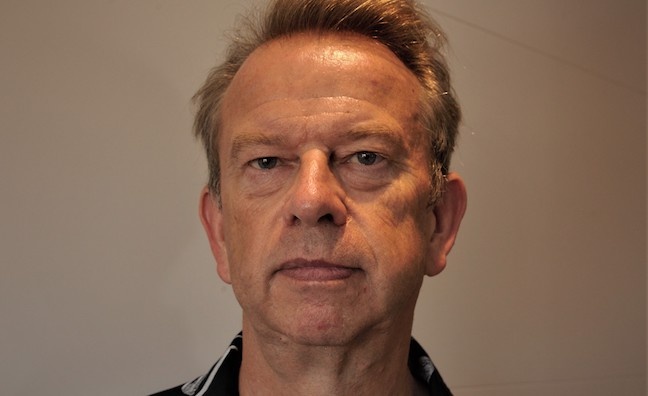Music Venue Trust CEO Mark Davyd’s monthly deep dive into live music’s biggest issues...
I am writing this month’s column from the inaugural National Independent Venue Association (NIVA) conference in Cleveland, Ohio, the first event of its type in the United States. It brings together hundreds of independent venue operators, staff, programmers and promoters, and is a celebration of the sector’s survival. It’s a chance to look at the future and to consider the ongoing challenges that the grassroots sector in the USA is facing.
These kinds of events are taking place everywhere across the world, as the industry emerges into the post-pandemic reality. The work co-ordinated by associations like LiveKomm (Germany), Canadian Live Music Association, VNPF (Netherlands) and Dansk Live (Denmark) during the pandemic was heavily shaped by national considerations and local realities. However, underpinning all of it was a collective drive and shared ambition: to make sure that independent small venues survived this crisis.
Some of the associations were created in response to the pandemic, some had existed for some time. But Covid placed a magnifying glass over them, as they moved to the forefront of the battle to save culture and cultural institutions, ultimately proving just how vital their work is.
These emerging associations representing the grassroots music sector are a new, very powerful, voice in our industry and beyond. It is remarkable to consider that in both the US and the UK, funding for live music was among the first packages of financial support offered by the respective governments. In the UK, the Emergency Grassroots Music Venues Fund was announced less than six weeks after the first lockdown, and delivered less than four weeks later. NIVA’s work in the USA placed the concerns of small independent venues alongside those of the aviation industry in terms of the response from politicians.
The NIVA conference, much like Music Venue Trust’s Venues Day last October, presents the opportunity to celebrate those achievements. Both share a much more important characteristic for the future of live music: the sense that with having broken down the barriers to understanding of the sector during the crisis, there is a new determination not to lose that impetus. Venues, and their associations, want to make real, radical, long-term and sustainable positive change for the grassroots sector.
These events are packed with ideas of exactly how to do that. Creative and challenging proposals aim not only to protect the infrastructure that we have, but to improve it for everyone who uses this network – from audiences, to artists, to crew and staff. Great work is emerging from these associations in terms of diversifying the sector, improving accessibility, promoting equality, and training and developing the workforce. There are discussions about carbon neutral venues, under-representation of communities, as well as long debates and discussions about the most vital element needed to achieve all of that: ambition. We have to find a way to make this sector financially viable, resilient and sustainable.
We need to stop applying a sticking plaster to a gaping wound and work out what surgery will solve the problem
Mark Davyd
Good charitable work should always have the aim of solving the problem you are trying to address. It’s part of our ethos at MVT that I don’t want to spend another eight years writing columns for Music Week explaining why the grassroots music venue sector needs another bail-out, and what drastic remedial action needs to be taken to prevent this or that venue from permanently closing. The sector needs a long-term plan that replaces short-term interventions. We need to stop applying a sticking plaster to a gaping wound and work out what surgery is going to solve the problem.
The threat of closures is back with a vengeance, with dozens of venues in our Emergency Response Service facing eviction, noise complaints, plus development and planning threats. Each of those venues has a local council, a local MP, sometimes a mayor or a regional body. It’s a rare day in the office when MVT isn’t approached by a politician or a political agency asking what they can do to prevent a closure in their constituency.
My own personal belief is that the UK’s music industry is more than capable of creating a robust and achievable plan, delivering it, and finding a way to protect our grassroots live music sector. I think we are very capable of doing that without government intervention. But I am also concerned that, as more and more cases of closure start to emerge, we have to act, and be seen to act, to prevent those outcomes. And if we do not, we create a very real risk that government will take action for us.
The government can see how vital our industry is, and can also see that one specific part of it is continuing to experience market failure. That market failure might be considered by some to pose no specific long-term threat to the future success of our industry. I strongly disagree with that view. These closures pose a direct and immediate threat to cultural access for our communities – and let’s not forget that those communities vote! Protecting cherished and much-loved local assets is a vote-winner. Either we can do it, or it will be done for us – and I suspect we may not enjoy that experience.
Astute observers of these issues will be aware that various European governments have already taken action, through levies, taxation and redistribution of funding within the music industry. My view is that, for a variety of reasons, we should avoid that outcome in the UK. To do so we must act and take control of the solutions required ourselves.












